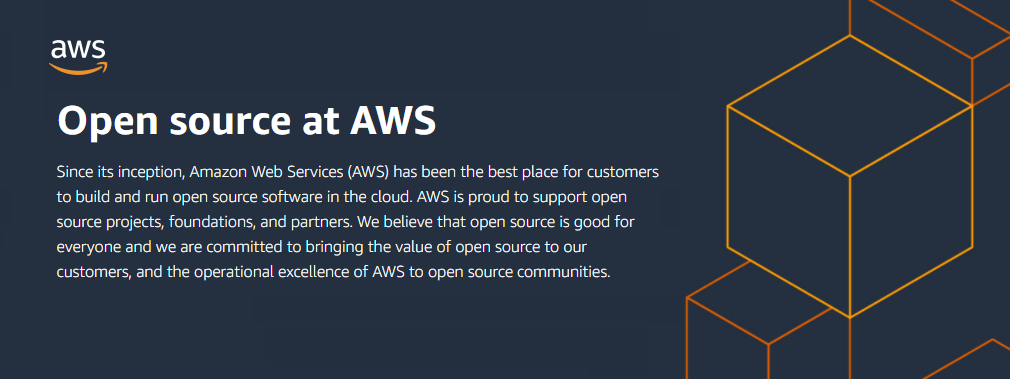

Graham Gillen
In early 2021, on the heels of a major licensing change by Elastic, Amazon announced the OpenSearch project, a code branch of Elasticsearch and Kibana under the Apache 2.0 open-source license. In the third and last of a three-part OpenSearch vs Elasticsearch blog series, we examine Amazon’s point-of-view and reactions. Other blogs in the series cover the User point-of-view and the Elastic point-of-view.
Amazon’s Role in Fueling OpenSearch vs Elasticsearch
There are two ways to view the OpenSearch vs Elasticsearch debate. One is an evaluation of two search platforms, based on their features, functionality, and technical merits. Another is to view the two companies backing these platforms, making this an Elastic vs Amazon / AWS debate. That is because it’s questionable if OpenSearch would have gotten off the ground without Amazon behind the launch.
OpenSearch can trace its origins to Open Distro, which was a branch of Elasticsearch announced in 2019. There have been other middling attempts to branch Elastic code, such as Banana, a branch of Kibana that is meant to be paired with Solr. Open Distro had the advantage of launching with the support of AWS which lent much more weight to the open-source project. Amazon also contributed security, monitoring and management code to Open Distro, to try to make it comparable to Elastic’s X-Pack offering at the time.
One can speculate whether Amazon’s support for Open Distro was a hedge against a tumultuous relationship, or some distaste for how quickly Elastic cozied up to Microsoft and Google. “The friend of my enemy is my enemy”? Publicly, AWS wore a white hat and stated publicly that Open Distro was started in support of keeping the code fully open source.
In any case, Open Distro did not make a lot of waves in the market when it launched. If you were an AWS customer, your preferred option was still to use Amazon Elasticsearch Service – the “original” distribution of the code. That is, until Elastic’s license changes forced Amazon’s hand, leading to a “relaunch” of Open Distro as OpenSearch. As Elastic and Amazon’s lawyers racked up legal fees, Amazon was ultimately forced to drop its “pure” Elasticsearch service and create the Amazon OpenSearch Service. This move – with the full weight of Amazon’s backing – is what truly gave life to OpenSearch vs Elasticsearch.
Amazon’s History with Open Source
There are many examples of tech behemoths learning to “playing nice” with open source, most notably IBM’s acquisition of Red Hat, and Microsoft’s pivot to being more open source friendly. On the one hand, these were PR-driven moves to combat the “evil empire” image that these companies might have developed, but on the other hand, it was also a move to attract engineering talent that wanted more open, less “toxic” work environments.
There are parallels between these examples and AWS, but Amazon’s ultimate business strategy has always made it supportive of open source. When your core business is running a massive cloud compute platform – much like a utility – it benefits you to support customers’ ability to run a low-cost / no-cost software stacks on top of your cloud to keep operating costs to a minimum. It would be like Elon Musk selling cars below cost to make money from Tesla charging networks.


It’s Not Personal, It’s Just Business
In a recent interview with InfoWorld, it’s obvious that Elastic CEO Shay Banon still takes the feud with Amazon very seriously – and personally. He blames Amazon for forcing the Elastic license change and adds a personal anecdote.
“At a very high level, our approach—and Cloudflare’s approach and a few other companies’ approach—is similar, which is like if there’s a bully in the schoolyard… At some point you need to stand up and say enough is enough.”
Shay Banon, Elastic CEO
Banon may feel justified in calling Amazon a “bully”, but being much bigger than a foe doesn’t automatically make you a bully. Amazon is just leveraging the considerable influence it has in the market. A tiger can’t change its stripes.
This reminds me of a scene in the classic movie Casablanca. Nefarious character Ugarte (played by the brilliant Peter Lorre) says to our hero Rick (played by Humphrey Bogart): “You despise me, don’t you?” Rick’s response? “If I ever gave you a thought, I probably would.” Amazon doesn’t seem bothered by what Banon thinks or what Elastic does. AWS is clearly focused on trying to make OpenSearch a successful open source branch of Elasticsearch (and Kibana).
In the article, it seems even Banon is somewhat relieved, now that Amazon had to change the name of their Elasticsearch service to the Amazon OpenSearch Service. The battle lines are very clearly drawn in OpenSearch vs Elasticsearch. There may never be a clear “winner”, but the market wins when there is choice.
Closing Advice for Our Customers on OpenSearch vs Elasticsearch
Pureinsights prides itself in being a technology-agnostic firm. We always let a customer’s technical and business needs dictate how we deliver a solution.
- If a client is struggling to choose between different search engine platforms, we usually advise anecdotally that there is an 80 percent overlap in functionality between the top solutions. We can always work with the one you choose that best fits your needs.
- In addition to analyzing the technical merits of Elasticsearch vs. OpenSearch, it’s also important to ask yourself “who do I consider my most strategic IT vendors?” Is it AWS? Or do I lean towards Elastic (and maybe Google or Microsoft)? Our first blog in this series provided a rudimentary set of decision trees for OpenSearch vs Elasticsearch.
In the end, we can help our customers with either Elasticsearch or OpenSearch in their search-based applications.
Concluding the Series…
This concludes our three-part blog series on OpenSearch vs Elasticsearch. We’ll cover Elasticsearch and OpenSearch in more depth as well as latest developments in future blogs. If you enjoyed this post, please consider sharing it using the social media buttons below.
For a free 1:1 consultation to further discussion the evaluation of OpenSearch vs Elasticsearch, please feel free to CONTACT US or explore our range of search application services.
Additional Resources
If you missed any part of the series, you can read them all here: